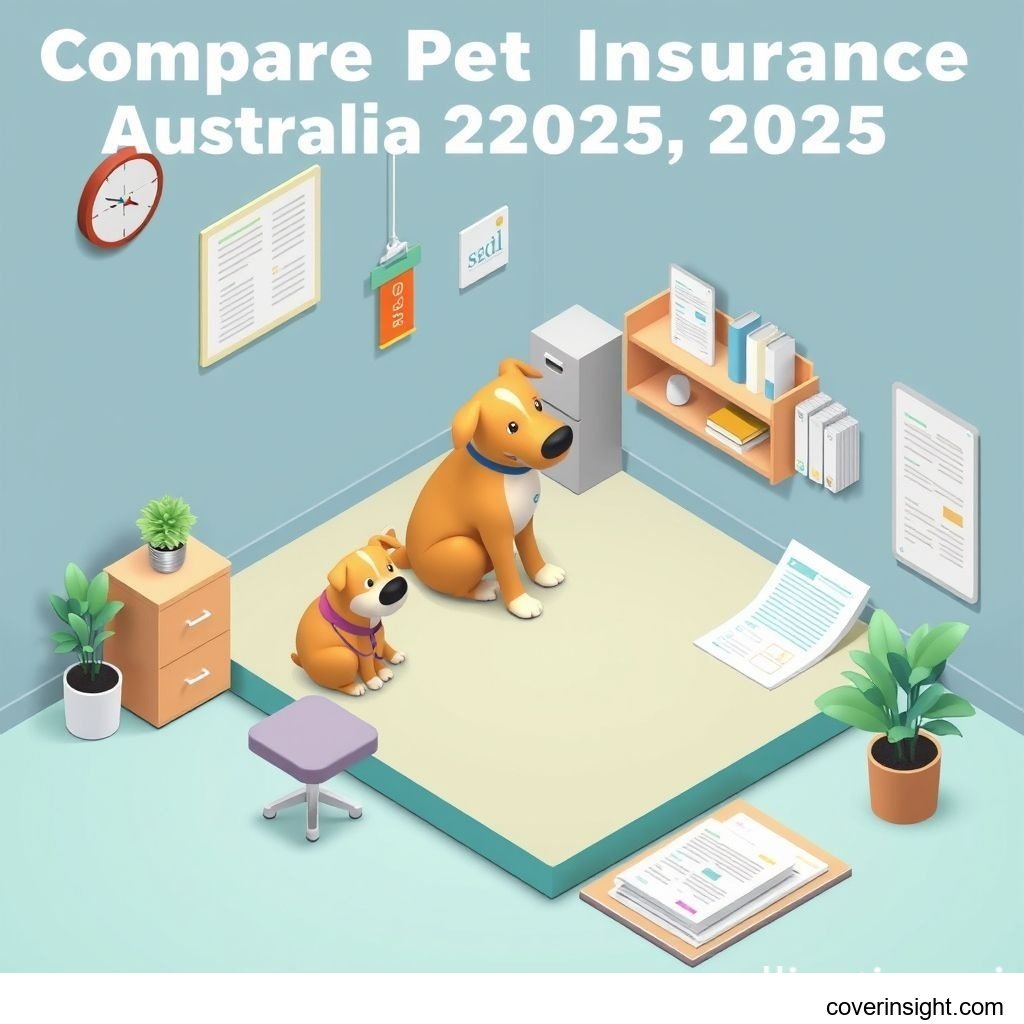Sole Trader Insurance AU: Essential Public Liability Guide
Introduction
In the dynamic Australian business landscape of 2025, understanding comprehensive insurance is paramount, especially for sole traders. As you navigate the complexities of running your own enterprise, protecting your assets and reputation becomes non-negotiable. This guide will specifically focus on Public Liability, a cornerstone of protection, and delve into how aig business insurance offers tailored solutions for sole traders across Australia. Securing the right coverage isn't just about compliance; it's about safeguarding your future and ensuring peace of mind against unforeseen events.
Coverage Details
Navigating the world of insurance can be complex, but understanding the core elements of your Public Liability policy is crucial. This section provides a detailed look at what is typically included in aig business insurance policies for sole traders and common exclusions to be aware of.
What’s Included
Public Liability insurance is designed to protect your business from claims of injury or property damage to third parties caused by your business activities. For sole traders, this coverage is particularly vital as personal and business liabilities can often intertwine.
Key inclusions typically found in Public Liability components of aig business insurance policies:
-
Third-Party Bodily Injury: Covers legal costs and compensation payable if a third party suffers injury or death due to your business operations. This could range from a client tripping in your office to an accidental injury caused by your work on a client's property.
-
Third-Party Property Damage: Provides cover for damage to property belonging to others. For example, if you're a plumber and accidentally damage a client's floor while working, this would typically be covered.
-
Legal Defence Costs: Crucially, it covers the legal fees associated with defending a claim made against you, regardless of whether you are found liable or not. This alone can be a significant financial burden without appropriate coverage.
-
Products Liability: Often included or available as an extension, this covers claims arising from injury or damage caused by products you sell, supply, or manufacture.
-
Advertising Liability: Protects against claims arising from libel, slander, or copyright infringement in your advertising materials.
These elements collectively form a robust safety net, allowing sole traders to operate with confidence, knowing they are protected against significant financial risks.
Common Exclusions
While aig business insurance offers extensive protection, it's equally important to be aware of common exclusions. These are specific situations or types of claims that the policy will not cover. Understanding these can help you identify if additional specific policies are needed.
Typical exclusions in Public Liability policies include:
-
Professional Negligence: This relates to financial loss suffered by a third party due to advice or services you provided. This falls under Professional Indemnity insurance, a distinct type of coverage.
-
Damage to Your Own Property: Public Liability covers third-party property, not your own business assets. For this, you would need Property and Contents insurance.
-
Employee Injuries: Work-related injuries to your employees are covered by Workers' Compensation insurance, which is mandatory in Australia for businesses with employees (even if you later expand beyond a sole trader setup).
-
Asbestos-Related Claims: Many policies exclude claims related to asbestos exposure.
-
Contractual Liabilities: Obligations you assume under a contract that go beyond what would normally be covered by law.
-
War and Terrorism: Acts of war or terrorism are standard exclusions across most insurance policies.
-
Intentional Acts: Damage or injury caused by intentional or reckless acts by you or your employees.
It's vital to read your Product Disclosure Statement (PDS) carefully for a full list of inclusions and exclusions specific to your chosen aig business insurance policy.
Cost Analysis
The cost of aig business insurance for sole traders can vary significantly based on several factors. Understanding these elements can help you obtain an accurate quote and potentially identify areas for savings.
Price Factors
When calculating your premium, insurers like AIG consider a range of variables designed to assess the level of risk associated with your business.
Key factors influencing the price of your Public Liability coverage include:
-
Type of Business/Industry: Some industries inherently carry higher risks than others. A builder, for example, faces different risks than a graphic designer. High-risk trades typically incur higher premiums.
-
Level of Coverage (Sum Insured): The maximum amount the insurer will pay out for a claim directly impacts the premium. Common levels of Public Liability cover range from $5 million to $20 million. Higher limits offer greater protection but at a higher cost.
-
Business Turnover/Revenue: A higher turnover can sometimes indicate a larger scale of operations and, potentially, more exposure to risk, which can influence premiums.
-
Claims History: A history of previous claims can indicate a higher risk profile and may lead to increased premiums. Conversely, a clean claims record can be beneficial.
-
Location of Business: Operating in certain high-traffic or high-risk areas might influence the premium.
-
Number of Employees (If Applicable): While this guide focuses on sole traders, if your business grows to include employees, this will significantly affect your overall aig business insurance package.
-
Risk Management Practices: Demonstrating robust safety protocols, quality control, and risk management strategies can sometimes positively influence your premium.
Saving Tips
While comprehensive coverage is essential, there are ways sole traders can manage and potentially reduce the cost of their aig business insurance without compromising on vital protection.
Consider these tips to save on your premiums:
-
Choose the Right Sum Insured: Assess your actual risk exposure and choose a sum insured that provides adequate protection without being excessively high for your specific sole trader operation.
-
Bundle Policies: AIG, like many insurers, often offers discounts when you bundle multiple policies, such as Public Liability with Professional Indemnity or even commercial vehicle insurance. Inquire about package deals.
-
Implement Strong Risk Management: Actively mitigate risks in your business. This could include formal safety procedures, regular equipment maintenance, and clear client communication. Demonstrating a proactive approach to risk can sometimes lead to lower premiums over time.
-
Increase Your Excess: Opting for a higher excess (the amount you pay upfront when making a claim) can reduce your annual premium. Ensure it's an amount you're comfortable paying if a claim arises.
-
Review Your Policy Annually: Business circumstances change. What was adequate last year might not be today, and vice versa. Review your aig business insurance policy annually to ensure it still meets your needs and to remove any unnecessary coverage.
-
Maintain a Good Claims History: Avoid making small, avoidable claims. A clean claims record is a strong negotiating point for lower premiums.
Why AIG Business Insurance for Sole Traders?
AIG stands as a prominent global insurer, offering a comprehensive suite of insurance products designed for businesses of all sizes, including sole traders in Australia. Their experience and global reach bring a distinct advantage.
The AIG Advantage
Choosing aig business insurance means partnering with an insurer known for its extensive expertise and capacity. For sole traders, this translates into several key benefits:
-
Specialised Expertise: AIG understands the unique challenges faced by sole traders across diverse industries, offering products tailored to specific risks.
-
Global Presence, Local Knowledge: While a global entity, AIG has a strong local presence in Australia, ensuring compliance with Australian regulations and an understanding of the local market.
-
Comprehensive Product Range: Beyond Public Liability, AIG offers a broad spectrum of commercial insurance products, making it easier to manage all your business insurance needs under one roof. This includes policies like commercial vehicle insurance and even specific coverages for directors' liability coverage if your sole trader business evolves.
-
Financial Strength: AIG's strong financial ratings provide assurance that they have the capacity to meet claims, even large and complex ones.
Tailoring Your Policy
One of the most significant advantages of aig business insurance is its flexibility in tailoring policies. No two sole traders are exactly alike, and your insurance should reflect that.
Steps to tailor your policy:
-
Risk Assessment: Work with an AIG representative or broker to conduct a thorough assessment of your specific business risks. This goes beyond the general dangers of your industry to consider your unique operational methods, clientele, and assets.
-
Customise Coverage Limits: Adjust the sum insured for Public Liability, and consider other types of coverage such as Professional Indemnity if you offer advice or services.
-
Add Specific Extensions: Depending on your business, you might need specific extensions. For example, if you work from home, you might need to ensure your home office equipment is covered. If you frequently attend client sites, you might need specific portable equipment coverage.
-
Review and Adapt: As your business evolves, your insurance needs will too. A good partnership with AIG allows for regular reviews and adaptations of your policy to ensure it remains relevant and comprehensive.
Beyond Public Liability: Other Key AIG Business Insurance Policies
While Public Liability is often the first insurance sole traders consider, a truly robust protection strategy involves evaluating other critical policies. aig business insurance offers a suite of options designed to provide holistic coverage.
Commercial Vehicle Insurance Explained
For many sole traders, their vehicle is an indispensable tool of their trade, carrying equipment, transporting goods, or enabling client visits. Standard personal car insurance policies often do not provide adequate coverage for vehicles used primarily for business purposes.
Commercial vehicle insurance through AIG can cover:
-
Accidental Damage: Covers damage to your own vehicle from accidents.
-
Theft and Fire: Protection against loss due to theft or fire.
-
Third-Party Property Damage: Covers damage your vehicle causes to other people's property.
-
Business Use: Specifically designed to cover vehicles used for commercial activities, ensuring claims are not denied due to business use.
-
Tools of Trade: Can sometimes include coverage for tools and equipment stored in your vehicle (check specific policy details).
Having specific commercial vehicle insurance ensures that your crucial business asset is properly protected, minimising downtime and financial loss if an incident occurs.
Understanding Directors' Liability Coverage
While the term "directors' liability coverage" might primarily sound relevant to companies with a board, it’s worth understanding its nuances, particularly if you envision your sole trader business growing or if you operate under certain trust structures. While a sole trader typically doesn't have a board of directors, if your business evolves into a company structure, this becomes critical. It protects directors and officers (including yourself, as a director of your own company) from claims of wrongful acts committed in their capacity. This is distinct from Public Liability, as it covers alleged breaches of duty, misrepresentation, or errors in judgment rather than physical damage or injury.
Even as a sole trader, understanding the importance of directors' liability coverage sets a good foundation for future growth and risk management planning.
Other Essential Coverages
Beyond Public Liability and commercial vehicle insurance, sole traders should consider other forms of aig business insurance depending on their industry and operations:
-
Professional Indemnity (PI) Insurance: Crucial for sole traders offering advice or services (e.g., consultants, IT professionals, designers). It protects against claims of financial loss suffered by a client due to professional negligence, error, or omission in your services.
-
Business Property and Contents Insurance: Covers your business premises, stock, equipment, and contents against perils like fire, theft, or natural disasters. This is vital if you operate from a dedicated office or workshop.
-
Cyber Insurance: With increasing digital reliance, this protects against financial losses and liabilities arising from data breaches, cyberattacks, and system interruptions. Essential for any sole trader holding client data or conducting online transactions.
-
Personal Accident and Illness Insurance: While not strictly business insurance, it provides income protection if you, as the sole trader, are unable to work due to injury or illness. As a sole trader, your income stops if you stop working, making this a critical personal safety net.
Navigating AIG Business Insurance: Claims and Support
A key aspect of any insurance policy is the ease and efficiency of the claims process and the availability of support when you need it most. AIG aims to provide a streamlined experience for its clients.
Making a Claim
When an incident occurs that might lead to a claim, a clear and timely process is essential.
Steps for making a claim with aig business insurance:
-
Immediate Action: First, ensure the safety of all involved parties and prevent further damage. Document the scene with photos or videos if safe to do so.
-
Notify AIG Promptly: Report the incident as soon as possible. AIG typically has a dedicated claims hotline or online portal. Provide all relevant details, including the date, time, location, and circumstances of the incident.
-
Provide Documentation: You'll likely need to provide supporting documents, such as incident reports, police reports (if applicable), witness statements, photos, invoices for damaged property, or medical reports for injuries.
-
Cooperate with Adjusters: AIG will appoint a claims adjuster to assess the situation. Cooperate fully by providing any requested information and allowing access for inspection if necessary.
-
Review and Settlement: Once the assessment is complete, AIG will communicate their decision regarding the claim and the proposed settlement.
Effective communication and prompt action are key to a smooth claims process.
AIG's Support Network
AIG's commitment extends beyond policy issuance to providing robust support for its clients.
AIG's support network typically includes:
-
Dedicated Claims Teams: Specialist teams are on hand to guide you through the claims process.
-
Online Resources: Access to policy documents, FAQs, and online claim submission portals.
-
Broker Network: AIG often works with a strong network of insurance brokers who can provide personalized advice, help you choose the right aig business insurance policy, and assist with claims management.
-
Risk Management Advice: For certain policies and clients, AIG may offer resources or advice on best practices for risk mitigation.
Leveraging these support channels ensures that sole traders can confidently manage their insurance needs and receive assistance when it matters most.
FAQs
Here are common questions sole traders ask about aig business insurance and Public Liability in Australia.
-
How much does aig business insurance cost?
The cost varies significantly based on your business type, industry risk, desired coverage limits (sum insured), and claims history. A low-risk home-based consultant might pay a few hundred dollars annually, while a high-risk contractor could pay thousands. It's essential to get a tailored quote.
-
What affects premiums?
Premiums are affected by your business type, revenue, location, claims history, the specific coverages you choose (e.g., Public Liability, Professional Indemnity, commercial vehicle insurance), and the level of cover (sum insured) for each policy. Risk management practices can also play a role.
-
Is it mandatory?
Public Liability insurance is not legally mandatory for all sole traders in Australia, except in certain industries or for specific contracts. However, most clients, landlords, and venues will require you to hold a minimum level of Public Liability coverage before they engage your services or allow you to operate on their premises. It is highly recommended for all businesses.
-
How to choose?
To choose the right aig business insurance, first, assess your specific business risks. Then, determine the appropriate level of Public Liability cover. Consider other essential policies like Professional Indemnity if you provide advice, or commercial vehicle insurance if your vehicle is integral to your trade. Compare quotes, review policy inclusions and exclusions carefully, and consider consulting with a qualified insurance broker who understands the nuances of sole trader operations.
-
Consequences of no coverage?
Operating without adequate Public Liability coverage can expose your personal assets to significant financial risk. If a third party is injured or their property is damaged due to your business activities, and you are found liable, you would be personally responsible for all legal defence costs and compensation payouts, which could amount to hundreds of thousands or even millions of dollars, potentially leading to bankruptcy.
Conclusion
For sole traders in Australia, securing comprehensive aig business insurance, particularly Public Liability, is not merely an optional expense but a strategic imperative. In 2025, the landscape of business risks is ever-evolving, making robust protection more vital than ever. By understanding what's included, being aware of exclusions, and knowing the factors that influence costs, you can make informed decisions. Beyond Public Liability, exploring options like commercial vehicle insurance and understanding the broader suite of AIG policies ensures a holistic approach to safeguarding your enterprise. Investing in the right insurance provides the peace of mind necessary to focus on what you do best: growing your business.







Comments